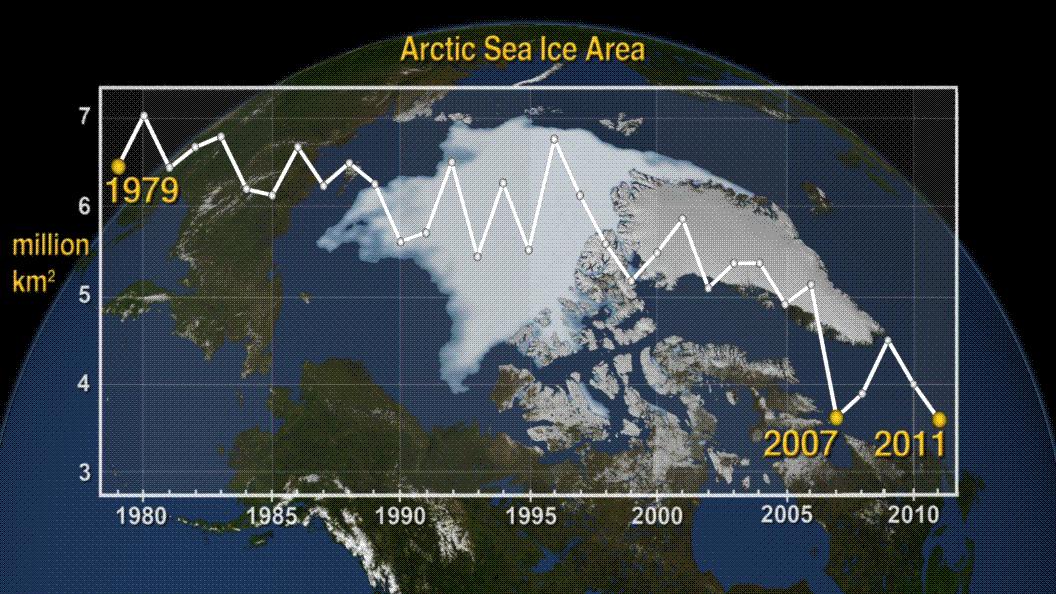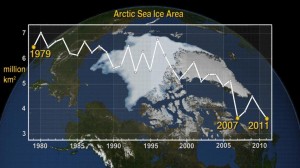
The Threats of Climate Change to Security Deserve Study
Cross-Posted from Andrew Holland’s “Energy, Security, Policy” blog
Earlier this week, the Washington Times wrote a particularly angry and irrational editorial arguing against the military planning for climate change. The proximate reason for their editorial was Secretary Panetta’s speechon May 2 at the Environmental Defense Fund in which he said “Climate Change has a Dramatic Impact on Our National Security.” ASP blogged about the speech last week.
Normally, I would not take the time to respond to the Washington Times editorial, as they are notorious for being at the far edge of the spectrum on this issue, and far away from any scientific mainstream, but some of the assertions are so scurrilous that they require a response. They simply cannot stand without being challenged.
They write that the national-security threat of climate change “is a fight America can’t afford.” However, as I have discussed before, a changing climate does pose real threats to America’s national security. Rising sea levels, changing precipitation patterns, increasingly dangerous weather disasters, and melting polar ice caps could destabilize countries, and the U.S. military must be prepared to react to the conflicts that could result from these changes. There is a robust academic argument about the precise linkages between climate and conflict, but that is not where this editorial goes.
Instead, there are some serious assertions in the editorial that must be responded to because they are so far from reality. I will precisely go through them.
First, on polar ice caps, they state:
Not surprisingly, the polar ice caps have not melted in expected fashion. For example, Arctic sea ice in April averaged 5.69 million square miles, “the highest average ice extent for the month since 2001,” according to the National Snow and Ice Data Center.
They are right: the polar ice caps have not melted in “expected fashion” – they’ve melted much faster. To simply cherry-pick one data point — April’s ice extent — is unscrupulous at best. They could have just as truthfully have stated that Arctic sea ice in September averaged “The second lowest ice extent for the month on record.” The truth is that, although we see one month that has above-average levels of sea ice, the overall trend is down, and the recent trend — within the last 5 years — is way down. See more here at the National Snow and Ice Data Center.
Second, on the IPCC’s report on severe weather, they claim that the IPCC “published a special report backing away from its claim that severe weather events resulting from either human activity or natural occurrences are trending upward.” The IPCC did recently publish a “Special Report on Managing the Risks of Extreme Events and Disasters to Advance Climate Change Adaptation.” If you read their summary for policymakers, they do state that it is the increasing exposure of people and infrastructure to damage that have caused the recent increase in damage from extreme weather — not climate change. Although they state that “A role for climate change has not been excluded.” However, on balance, the IPCC’s report specifically states that climate change “has led to heat waves, record high temperatures, and heavy precipitation. It is simply astonishing to me that they repeatedly cite reports and research organizations whose other work directly contradicts what they are trying to say.
Finally, they argue that solar micro-grids and algae fuel are “unaffordable energy boondoggles” while ignoring the fact that the military’s current energy usage puts American lives at risk in Afghanistan. The military knows that solar power at forward operating bases reduces the need for vulnerable diesel fuel convoys and we know that alternative fuels like algae-based biofuel hold the promise of reducing our strategic dependence on oil from our adversaries across the Middle East. These are not being done “to combat carbon dioxide – the harmless gas essential for all life on this planet” – but are instead being done strictly to ensure that the U.S. military is better able to fight and win our nation’s wars.
I do understand those who are skeptical of the science on climate change; it is important to always rigorously question science, especially when so much government policy is based on that science. However, can’t we agree that the content of this editorial are so far out of bounds? That this actually was written by a widely-read newspaper editorial board, and not in some blog is what worries me. In addition, the fact that they are opposing the study in the Department of Defense of how climate change could affect security — not the policy to fight it — is doubly crazy.







[…] Holland: The Threats of Climate Change to Security Deserve Study […]
… [Trackback]…
[…] Read More: americansecurityproject.org/blog/2012/the-threats-of-climate-change-to-security-deserve-study/ […]…